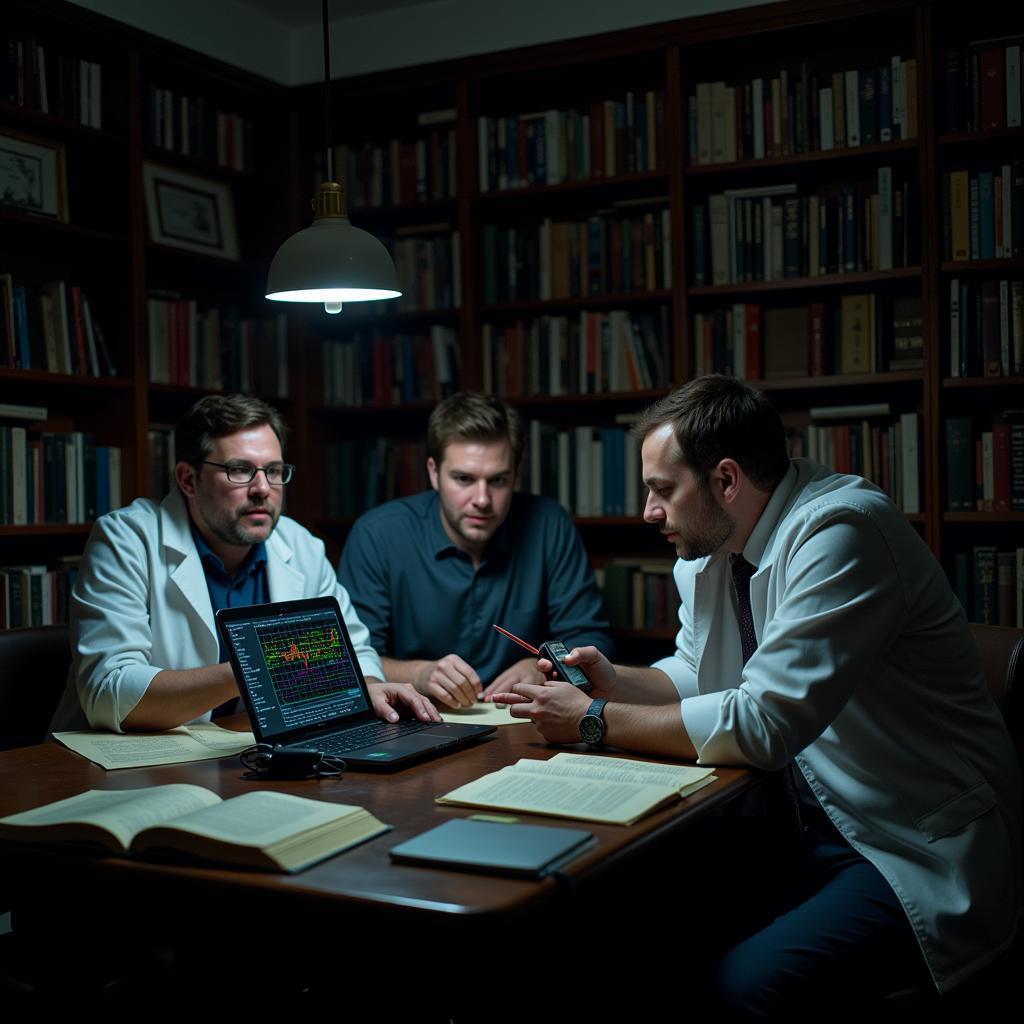The world of paranormal research is shrouded in mystery, often debated and questioned. Central to this captivating field are the Research Philosophies that guide our understanding and investigation of these unexplained phenomena. These frameworks, much like compasses guiding explorers through uncharted territories, provide structure and direction to our quest for knowledge in the realm of the supernatural.
Navigating the Unseen: Key Research Philosophies
Several research philosophies dominate paranormal research, each offering a unique lens through which to examine the unknown. Understanding these approaches is crucial for both researchers and enthusiasts seeking to unravel the mysteries that lie beyond conventional science.
1. Scientific Skepticism: A Foundation of Critical Inquiry
At the heart of paranormal research lies scientific skepticism, a philosophy emphasizing rigorous testing and empirical evidence. This approach encourages researchers to question everything, demanding extraordinary evidence for extraordinary claims.
Scientific skepticism, however, doesn’t equate to outright dismissal. Instead, it urges researchers to approach claims with a healthy dose of skepticism, applying the scientific method to seek natural explanations before concluding a paranormal origin.
2. Anomalistic Psychology: Exploring the Human Element
Anomalistic psychology delves into the psychological and sociological factors influencing the perception and interpretation of paranormal experiences. This approach recognizes the powerful role of human cognition, biases, and cultural beliefs in shaping our understanding of the unknown.
 A group of people discussing a paranormal event
A group of people discussing a paranormal event
By exploring how our minds process information and form beliefs, anomalistic psychology aims to differentiate genuine anomalies from misinterpretations, hallucinations, or culturally constructed narratives.
3. Experiential Approach: Valuing Personal Testimony
While scientific skepticism prioritizes objective data, the experiential approach acknowledges the significance of subjective experiences. This philosophy recognizes that personal accounts, often the starting point of paranormal investigations, can provide valuable insights into the nature of these phenomena.
However, this approach also emphasizes the need for critical evaluation. Personal testimonies, while important, can be influenced by a multitude of factors such as perception, memory, and personal beliefs. Triangulating these accounts with other forms of evidence is crucial for a balanced investigation.
Bridging the Gap: Integrating Research Approaches
The true strength of paranormal research lies in the integration of these diverse philosophies. By combining the rigorous testing of scientific skepticism, the psychological insights of anomalistic psychology, and the valuable perspectives offered by the experiential approach, we can build a more comprehensive understanding of the paranormal.
Imagine, for instance, an investigation into a reported haunting. While scientific instruments might be used to detect unusual electromagnetic fluctuations, understanding the psychological profiles of witnesses and considering the historical context of the location can provide a richer, more nuanced interpretation of the events.
 Researchers using various equipment and analyzing data in a library
Researchers using various equipment and analyzing data in a library
Conclusion: Embracing a Multifaceted Approach
Research philosophies serve as the compass guiding us through the often-confusing world of the paranormal. By embracing a multifaceted approach, combining scientific rigor with open-mindedness and acknowledging the complexities of human experience, we can continue to explore the unexplained, pushing the boundaries of our understanding and venturing further into the unknown.
FAQ
1. What is the most reliable research philosophy in paranormal research?
There is no single “most reliable” philosophy, as each approach offers unique strengths and limitations. The key is to integrate multiple perspectives for a comprehensive understanding.
2. How can I apply scientific skepticism to my own paranormal experiences?
Start by questioning everything, seeking natural explanations, and considering alternative hypotheses. Document your experiences meticulously and be open to the possibility that your perceptions might be influenced by external factors.
3. Why is understanding anomalistic psychology important in paranormal research?
Anomalistic psychology helps us recognize the role of human psychology in shaping paranormal experiences. This understanding is crucial for differentiating genuine anomalies from misinterpretations or hoaxes.
4. How can I contribute to responsible paranormal research?
Approach investigations with a critical and open mind, document your findings meticulously, and be transparent about your methods and conclusions. Consider joining a local paranormal research group to learn from experienced investigators.
5. Where can I learn more about research philosophies and their application in paranormal studies?
Numerous books, articles, and online resources delve into the various research philosophies employed in paranormal research. Reputable organizations like the Society for Psychical Research and the Parapsychological Association offer valuable information and resources.
Need help with your Paranormal Research? Contact us at 0904826292, email research@gmail.com, or visit us at No. 31, Alley 142/7, P. Phú Viên, Bồ Đề, Long Biên, Hà Nội, Việt Nam. Our 24/7 customer support team is ready to assist you.